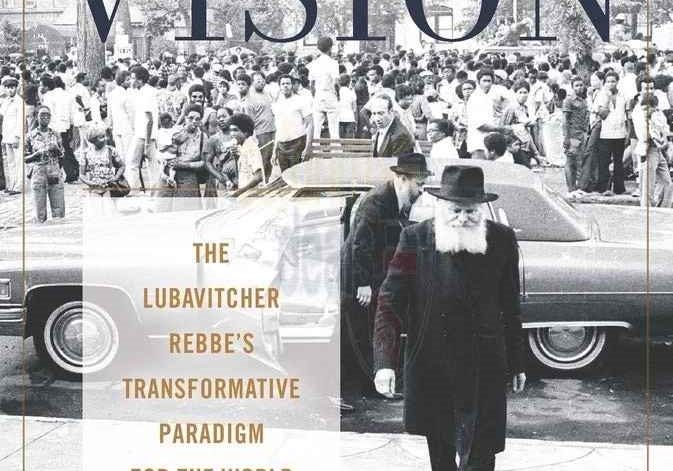New appointment announced at International Conference of Chabad-Lubavitch Emissaries
Rabbi Schneur and Yehudis Raitport arrived in the bustling Southeast Asian metropolis of Yangon, Myanmar, on a Monday in late 2018. The only kosher food they had in their luggage were spices. Still jet-lagged, on Wednesday morning the rabbi, also a shochet (trained ritual slaughterer), left the Airbnb where they were staying in the city of 7 million in search of kosher food for Shabbat. He headed straight to the market at 26th Street in downtown Yangon, where he heard he could procure live chickens.
“It was a halal stand, and I told them that instead of them killing the chickens, I wanted to slaughter them myself,” says Rabbi Raitport, 27, who, together with his wife, had just founded Chabad-Lubavitch of Myanmar. Using his hands and the help of a passerby with a working knowledge of English, the rabbi managed to explain to the hawker that after he killed the chickens, he didn’t want them to dip them into hot water, as they usually do to help with the defeatherment, but would take the chickens straight home. He shechted his three chickens, and headed to the next stand, which sold fish. Inspecting the fish, he found one with fins and scales, the signs of a kosher fish, and took it home. It was, he later learned, Asian sea bass.
“I went on YouTube and learned how to fillet the fish,” explains Raitport. “And that’s how we had food for Shabbos.”
Their appointment was announced at the Sunday-night gala banquet of the International Conference of Chabad-Lubavitch Emissaries (Kinus Hashluchim), which brought together some 5,800 Chabad rabbis and Jewish communal leaders from all 50 states and 100 countries.
The Raitports, who were appointed by Rabbi Yosef Chaim Kantor, director of Chabad of Thailand, moved to Myanmar—known during a century of British rule as Burma—to serve the local Jewish community, which they estimate numbers about 100 people, as well as international business people, tourists and Israeli backpackers, and aid workers. They have since moved their operation into a large villa in central Yangon, which during colonial times was called Rangoon, where they run a synagogue, host classes and Jewish holiday programs, and operate Myanmar’s first kosher restaurant. The Venezuela-born rabbi no longer gets his chicken in the market, with a large delivery arriving from a farm once a month, and heads to the wholesale fish market on the Yangon River at 5 a.m. to purchase the fresh carp that he and his wife turn into homemade gefilte fish.

“Ashkenazim [Jews of Eastern European descent] are shocked to see gefilte fish in Burma, and are even more surprised when they learn it’s actually made out of carp and not breadcrumbs,” says Raitport. “And Sephardim, who have never tasted it, see that it’s homemade, venture to taste it and they enjoy it, too.”
The couple’s time in Yangon has not been without jolts or adventures. When Yehudis Raitport arrived in Yangon with her husband and their two young children for the first time, she was shocked to see out of the taxi window someone spitting what she thought was blood.
“It was actually someone chewing betel nut,” she recalls, referring to a stimulant popular in much of the region. “It creates this red juice, but that was something I had never seen and didn’t expect.”
Then there was the time their home was flooded at the end of the monsoon season, and the rabbi had to spend hours pumping water out of the Chabad center. But most of the couple’s time has been spent building a Jewish community in this Southeast Asian outpost, a place that before World War II was home to some 2,000 Baghdadi Jews. The vast majority of that previous Jewish community fled the country amid Japanese air raids in 1942, escaping to Kolkata (Calcutta), India, from where they spread around the world.

‘We’re All Part of One Family’
These days, Myanmar’s Jewish community is far more diverse, with Jews from the United States and Canada, the United Kingdom, Europe and Israel forming the core. While not long ago Yangon was home to large numbers of aid workers assisting impoverished Burmese in the city, much of that funding has been rerouted towards the Rohingya crisis in the country’s north. Nevertheless, Raitport says a number of Jews in the aid sector have remained to do that much-needed work.
The work keeps coming. Just before the rabbi arrived in New York, Chabad’s restaurant catered two weeks’ worth of kosher meals—schnitzel, red-lentil-based hummus, Israeli salad, fresh pita—all of it homemade, to a group of a few dozen Israeli backpackers volunteering in a school outside of the city. The rabbi delivered the food daily, along with some tefillin and a few words of Torah.
For now, the Raitports have focused their work around Yangon, but the rabbi says he knows of Jews living in the country’s recently built capital, Naypyidaw, and hopes to visit Mandalay in the near future. In addition to being a shochet, he is also a trained mohel, and he has already been called on by his Chabad colleagues in Asia to perform brit milahs for baby boys born in South Korea and Vietnam.

It was another brit milah that closed a circle of sorts for Raitport. The rabbi was born and raised in Caracas, Venezuela, where his parents have served as Chabad emissaries for decades, and where Raitport’s father also serves as a shochet, mohel (and sofer). Before coming to Myanmar, the younger Raitport couple met in Jerusalem with the incoming Israeli ambassador to Myanmar, Ronen Gilor, and his wife, Sharon Hadar-Gilor. More than two decades ago, at the beginning of his diplomatic career, the Gilors were posted to the Israeli embassy in Caracas, where their youngest son was born.
“In the restaurant, they pulled out a picture of their son’s brit and asked if I recognized the mohel,” says Raitport. “I looked and I see: It’s my father!”
Not only did the elder Raitport circumcise the Gilors’ son, over their time in Venezuela they grew close to the family, and the ambassador is fond of telling people in Myanmar that he has known the rabbi since he was a little boy. It just goes to show, the rabbi says, how closely all Jews are connected to one another.
“The Rebbe [Rabbi Menachem M. Schneerson, of righteous memory] sent emissaries around the world because no matter where a Jew might be, we’re all part of one family, and we have a responsibility to each other,” says Raitport. “This was an amazing reminder of how true that really is.”






